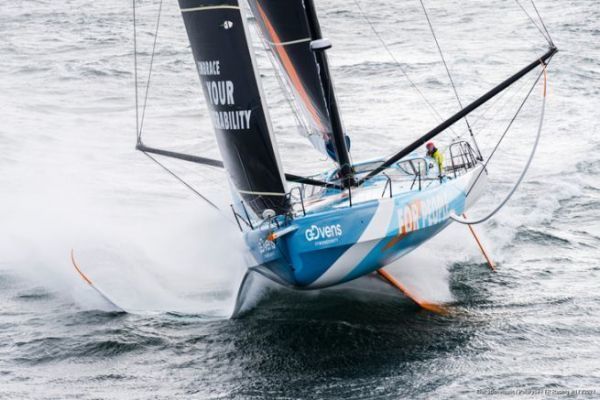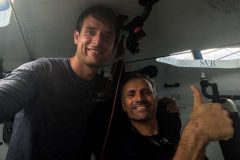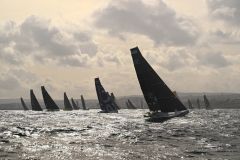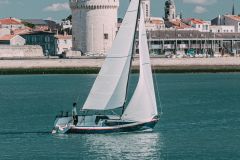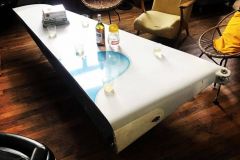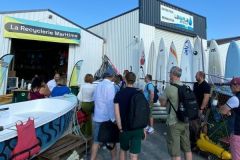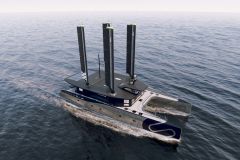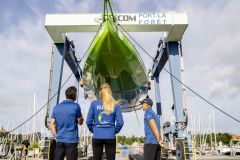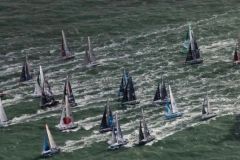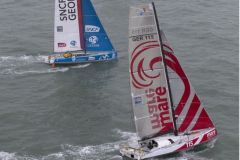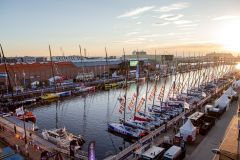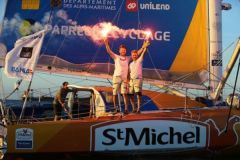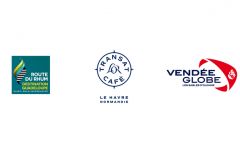A new IMOCA even before completing a round-the-world race
While the IMOCA class promotes values of sustainability, carbon footprint reduction and the circular economy, certain choices, like those of Thomas Ruyant, raise questions. In 2023, Ruyant had a new IMOCA built for the 2024-2025 Vendée Globe, but he's already launching the construction of another boat for 2026. While he has yet to test his new boat on a round-the-world race... Although his current IMOCA could be snapped up by Sam Goodchild, who shares his stable with TR Racing, the rapid pace of construction seems at odds with the values the class stands for.
Building more sustainably and analyzing impact
Indeed, in 2022, the class introduced the IMOCA charter, which includes criteria such as carrying out a Life Cycle Assessment (LCA) of an IMOCA boat, using alternative materials and fitting greener sails. In 2023, the 11th Hour Racing team's work had shown that the LCA of their boat generated the emission of 553 TCO2, or the carbon equivalent of the electricity consumption of 300 households.
Doesn't this frantic race for performance risk undermining the class's ecological commitments? Is it necessary to build new boats every three years to remain competitive? Couldn't we extend the life of IMOCA boats by improving the performance of existing boats, rather than constantly increasing production?
Building a new IMOCA is a costly process, both financially and in terms of carbon footprint. The use of advanced composite materials and technological optimization have a considerable impact. Yet the IMOCA class encourages the reuse and durability of equipment. However, choices such as Ruyant's show that the reality of competition remains dominated by the quest for performance, sometimes to the detriment of stated environmental values.
Some choose to build with sobriety in mind
Building a new IMOCA boat can also be part of a sober approach, as in the case of Jean Le Cam and Eric Bellion's joint project. The two sailors have decided to launch the construction of a new IMOCA for this 10th Vendée Globe, based on the latest fashionable design - a scow - but without foils. The overall budget for Jean Le Cam's IMOCA is 4 million euros, a handsome sum indeed, but halved in comparison with an ultra-competitive racing yacht. The two men's objective is to have a simple boat that will last over time.
Offshore racing more committed to sustainability
In addition to the IMOCA class, the whole of ocean racing is committed to sobriety. In the Mini Class, for example, it has been decided to limit the number of new boats to 25 by 2024, or to freeze new designs. The organization has also set up races reserved for "old" boats to keep them alive. Other examples include Class40 and Ocean Fifty boats, which limit or prohibit the use of carbon in their construction.
Finally, the question arises: are we prepared to sacrifice our ecological commitments in order to win at all costs? It's time for the IMOCA class and its skippers to find a balance between performance and ecological responsibility, so as to reconcile ocean racing and sustainability.

 /
/ 